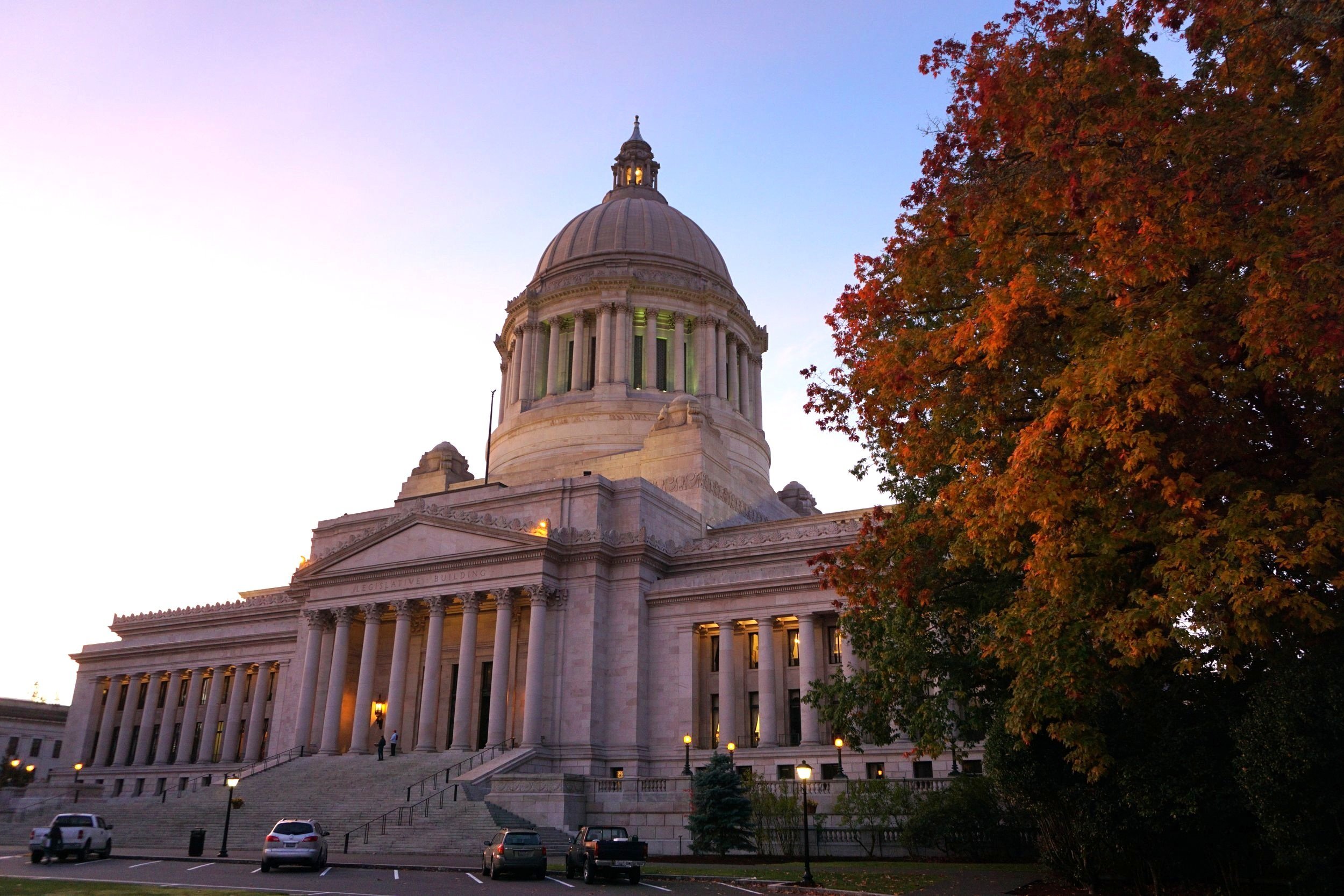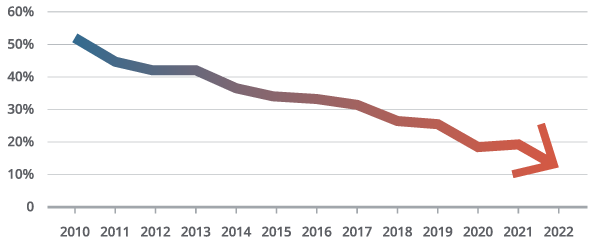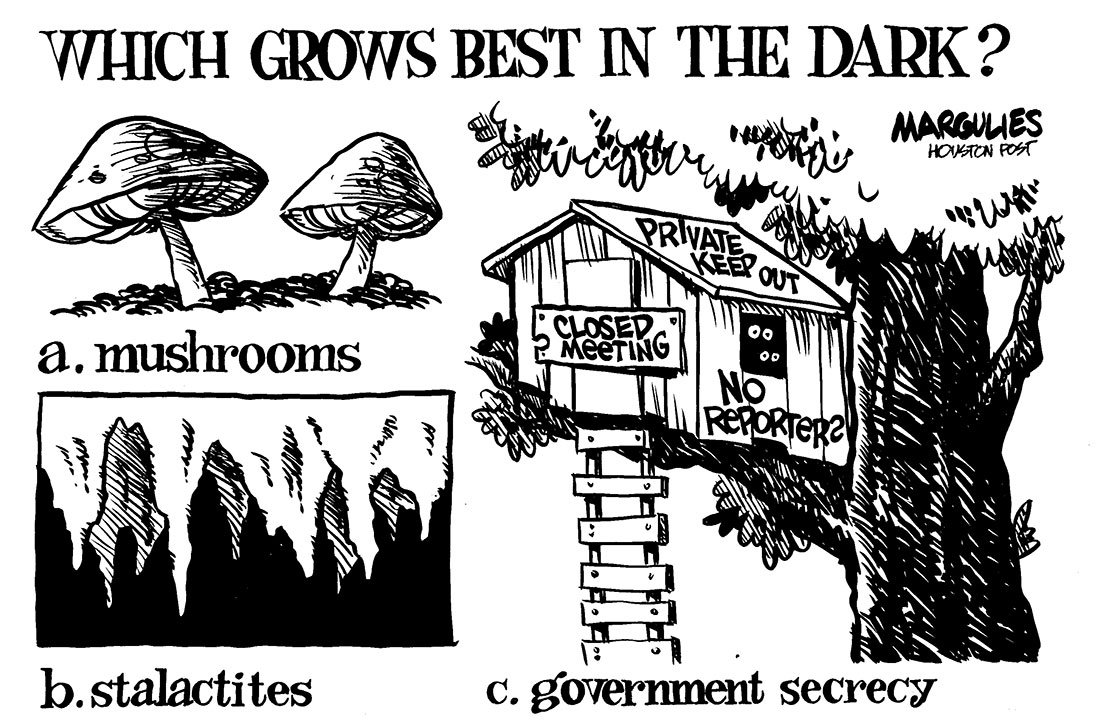
Your Right to Know Report
Perspectives | 1
The following essays represent the analysis and viewpoints of their authors.
The Big Picture: ‘Secrecy Creep’ Obscures Our View
Washingtonians are losing control of the instruments they created. In 1972, nearly a million Washington state residents voted to approve Initiative 276, with only 372,693 voting no. The initiative led with this statement:
Our whole concept of democracy is based on an informed and involved citizenry. Trust and confidence in governmental institutions is at an all-time low. High on the list of causes of this citizen distrust are secrecy in government and the influence of private money on governmental decision making. Initiative 276 brings all of this out into the open for citizens and voters to judge for themselves.
A half century later, the public’s right to know is threatened, not just in Washington state but throughout the nation, as a result of decades of systematic dismantling and evisceration of open record laws – what some call “ secrecy creep.”
Ten years ago, if you asked the federal government for a public record, you would get it about half the time. Now it’s 13% of the time. What will it be five years from now? Like climate change, we don’t notice until it’s too late, when we reach the tipping point in government transparency change.
U.S. Public Records Request Success Rate

Source: Analysis of federal FOIA request data from MuckRock.com by David Cuillier, 2023
The research says it all. Increasingly, public record backlogs stymie timely response. Citizens face arbitrary copy fees and excessive delays. Corporations have systematically carved out secrecy exemptions. The courts are clogged with litigation, costing taxpayers more than $43 million per year. Government public information officers are becoming increasingly adept at controlling their agencies' messages, so you receive less information that is independently vetted and questioned by journalists. Enforcement of public record laws is inconsistent and weak. The U.S. Freedom of Information Act’s legal provisions, on paper, are ranked in the bottom half of the world – 77th out of 139 nations. Canada’s law is ranked 53rd; Mexico’s is 2nd.
These and other alarming threats to democracy are highlighted by experts in this important and timely white paper, a wake-up call for anyone who cares about democracy and the Republic. So, why should we care?
Because government transparency matters.

Freedom of information laws and practices lead to cleaner drinking water, lower sex-offender recidivism, fewer food service complaints, increased trust in government institutions, reduced corruption, and they help parents make better school choices for their children. For every dollar spent on public records-based journalism, society benefits $287, according to Stanford University professor James Hamilton.
Some experts say the system is broken, and that we need to start from scratch. Others call for more proactive release of records, streamlining first-person requests, or using machine learning to retrieve and redact records. We can look to successes – to practices that improve transparency. We can look to Washington state.
In my research, I have found Washington to be one of the most transparent states in the nation – about two-thirds of public records requests are successful. Compared to Alabama’s 10%, that is good. But 66% is still a D in my gradebook, and we know it’s not improving.
What does Washington do well, compared to other states? For one, it has stronger penalties for non-compliance than most states, including fines and mandatory payment of attorney fees for people who successfully sue for records. Those sticks seem to matter , as in the case of Mesa, Wash. An appellate court in 2018 ordered the town of fewer than 400 residents to pay its former mayor $175,000 to resolve a lengthy public records dispute. Legislators should strengthen, not weaken, those provisions.
More can be done, as well. Citizens should not have to hire a lawyer to apply the law via court intervention. Instead, independent oversight agencies should allow free help, with the ability to require government to cough up the records, just as in Connecticut, Pennsylvania, and more than 50 nations throughout the world. Leaders should double-down on funding toward efficient records management tools. They should embrace the core principles of transparency and accountability.
There was a day when journalists served as the accountability watchdogs, suing for public records frequently, pushing for transparency laws, and exposing secrecy through tenacious reporting. Many still produce excellent work, and national and local media still sue frequently, but that light is fading as legacy media struggle to survive. As a result, smaller local news organizations sue less and have fewer reporters to expose corruption.
That means the responsibility falls to all of us. Just like in 1972, the citizens must make their voices heard and take control of the instruments they have created. That means supporting open government groups like Washington Coalition for Open Government (WashCOG). It means demanding that our leaders demonstrate backbone in serving with transparency and accountability, even when uncomfortable or difficult. And if they don’t, kick them out.
Ultimately, it means taking responsibility and ownership of our institutions, of our communities, because we, the people, have the right to know.
David Cuillier, Ph.D., is director of the Joseph L. Brechner Freedom of Information Project at the University of Florida. A native of Yakima and Ferndale, Wash., Cuillier worked at newspapers in the Pacific Northwest before earning his doctorate at Washington State University. He served as president of the National Freedom of Information Coalition, is editor of the Journal of Civic Information, a member of the Federal FOIA Advisory Committee, and has testified three times before Congress regarding the Freedom of Information Act. He can be reached at cuillierd@ufl.edu.
